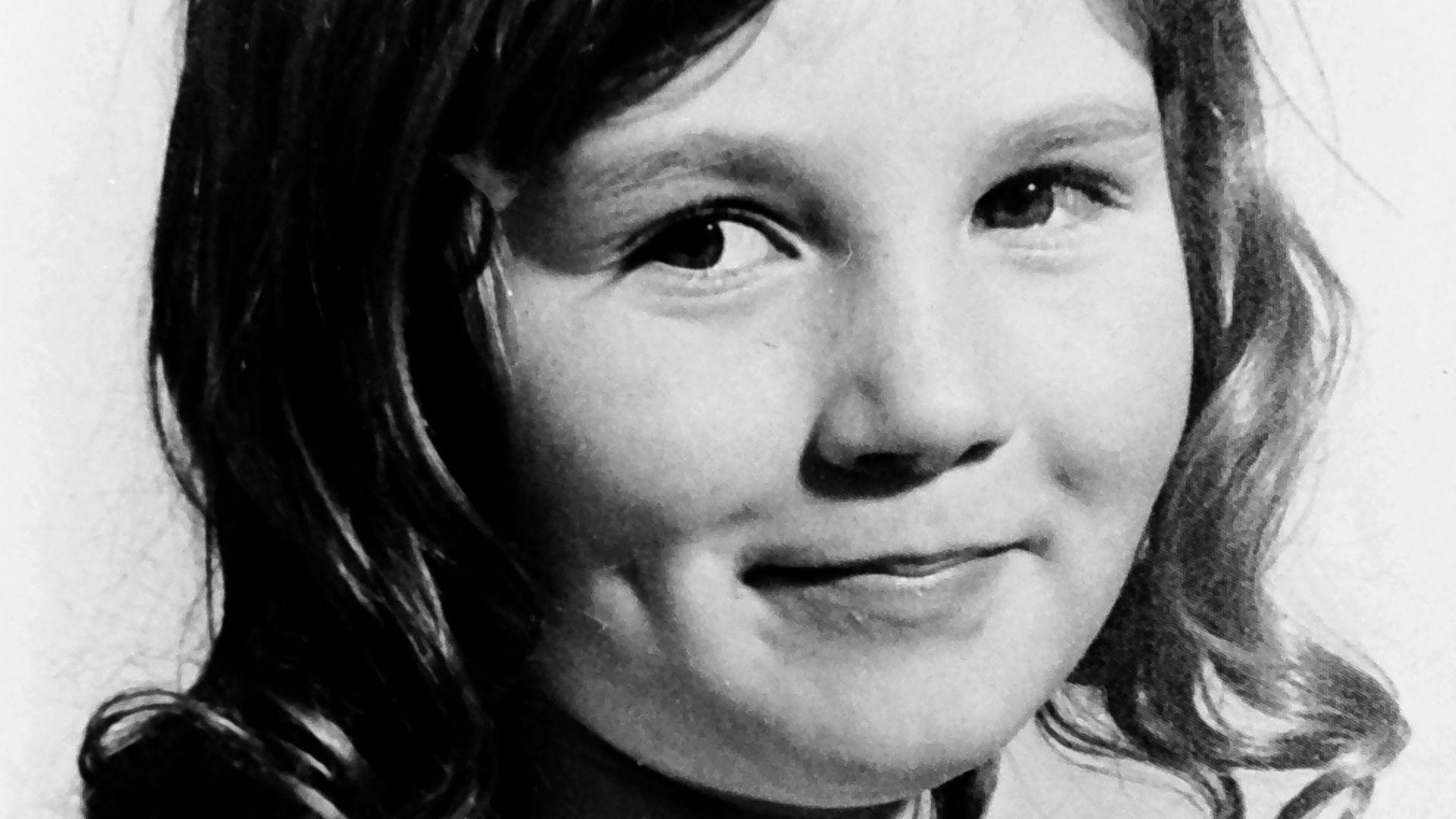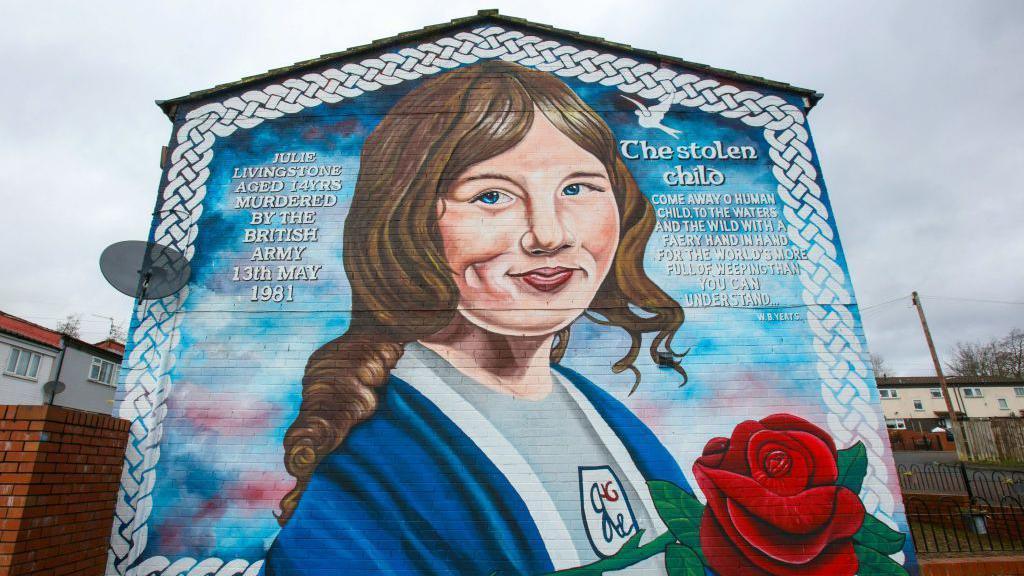The play that aims to keep memory of Troubles child alive

Charlotte McCurry has penned a play to remember her aunt who died during the Troubles
- Published
A Belfast actress hopes that her play will encourage those who lost children in the Northern Ireland Troubles to talk about them, so their names are not forgotten.
Charlotte McCurry's play explores how her family dealt with their grief following the death of her aunt Julie Livingstone, aged just 14, in May 1981.
Julie was shot with a plastic bullet by a soldier on her way home from a shop in west Belfast. She died the following day.
The new one-woman show, titled Julie, is seen through the eyes of Julie's sister Bernadette and follows how the then teenage girl navigated her own grief and that of her family.

Julie Livingstone was shot with a plastic bullet by an soldier on her way home from a shop in west Belfast
Julie, the youngest of 13 children, shared her bedroom in Lenadoon with Bernadette, who was two years older. Poignantly, that room is the set of the play.
Charlotte never met her aunt Julie but said writing the play was easy as the family talk about her so much.
"Julie was the younger of the two and she was more outgoing and Bernadette was quite shy but it was almost like when Julie died Bernadette took on her personality as a way of filling that gap in the family," said Charlotte.
Charlotte was born three years after Julie's death but feels that her aunt still played a large part in her life.
"When it came to writing the story, I know all the anecdotes inside out. I could reel them off because that's how my family have kept her alive," she said.
"I think that is something that is really important especially when it comes to children that were killed during the Troubles is being able to talk about them so they are not forgotten."
However, not every family affected by The Troubles felt they could openly talk about their grief and loss.
"I wanted to write this play as a way of encouraging them to talk about their loved one more and keep them alive," she said.
"I know the minute they had that platform they just opened up and realised people did want to hear those stories."
Despite the memories of Julie being told multiple times, Charlotte admitted that she felt a "weight of responsibility" to tell the story in a way that honoured her family.
"I did give her [Bernadette] and my aunties and my mummy a sneak preview, because I wanted to make sure that they were comfortable and okay with everything that I was saying."

Julie is also remembered in a mural on a gable wall in Belfast
Expecting her first baby, Charlotte said she has been able to incorporate this element into the play.
"I know I am having a girl and my aunt Bernadette's first child was a girl... it all just seemed to fit.
"I am looking forward to being able to say 'when I was pregnant with you I was doing this play', I think that's really special."
She said the play was "about legacy and the cyclical nature of life and how it carries on and is passed through the generations".
Charlotte explained Julie was also foremost in her family's minds through developments in the controversial Legacy Act.
The act, which was brought in by the Conservatives, introduced a ban on inquests and civil actions related to incidents during the Troubles.
It also sought to offer a conditional amnesty for people suspected of Troubles-related crimes in exchange for co-operating with a new information recovery body. That element was later ruled unlawful.
Victim's families, including Charlotte's, opposed the act and Labour is in the process of repealing it.
Charlotte said she does not normally feel nerves before going on stage but with her family watching, particularly Bernadette, she was nervous about the opening night.
Following its run at Féile an Phobail, the play is being shown in the Seamus Heaney HomePlace in Bellaghy, the Playhouse in Derry, and the Old Church in Cushendun.